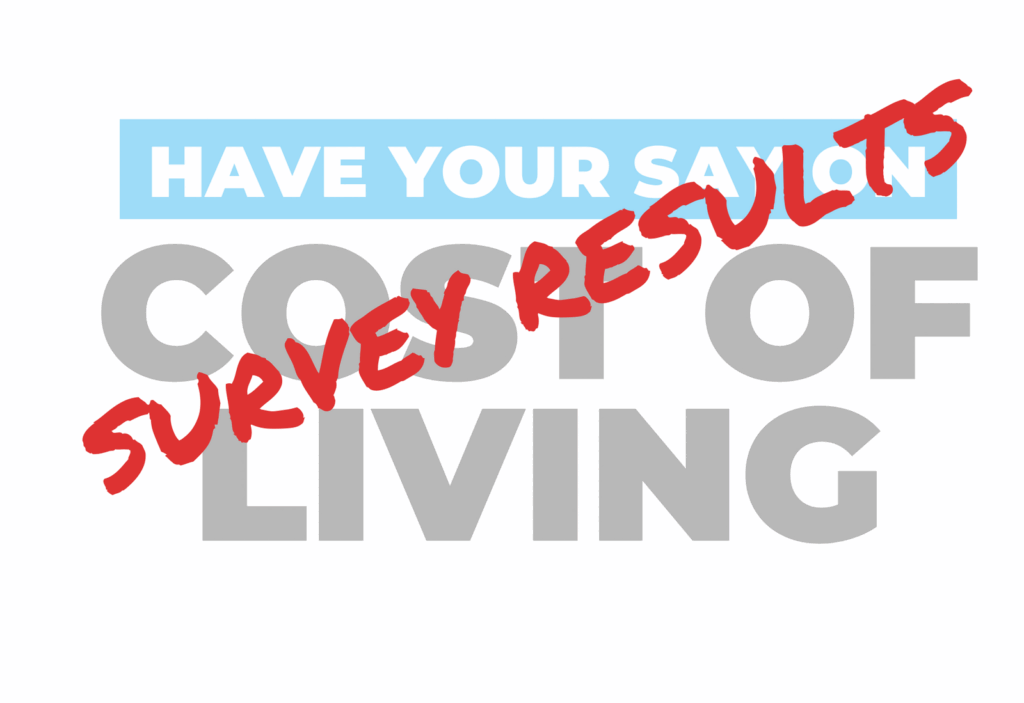Earlier this year I conducted a survey of Fairfax residents on the pressures of the cost of living.
Thank you to the over 350 people who took the time to let me know how they and their family are being impacted by the increasing cost of basic necessities.
I have collated the results, which are outlined below.
Who completed the survey?
356 survey responses were received of which 79 were outside the Fairfax electorate. For completeness of the survey, only those within the Fairfax electorate were included in the below analysis.
The survey reached across Fairfax and socio-economic areas; from Buderim and Mountain Creek in the south to Eumundi in the north; Coolum Beach on the Coast to Mapleton in the hinterland; as well as the main township suburbs of Maroochydore and Nambour.

Where is the cost of living being felt most?
(356 responses)
By far, most respondents are experiencing cost of living pressures at the grocery checkout with 43% citing food and groceries as the number one pressure. This was followed by housing costs (mortgage and rent) at 20%, and energy and power costs at 13%. A further 10% of respondents say the cost of health was being felt most.

What effect are cost of living pressures having on your mental health?
(356 responses)
Overwhelmingly, 69% of respondents say their mental health was being affected a mod-large amount because of cost of living pressures. Only 8% said their mental health was not being affected.

What have you re-prioritised or gone without as a result of cost of living pressures?
(281 responses*)
Over 80% of respondents to this question have either reprioritised their spending or eliminated certain spending altogether as a result of the escalating cost of living.
Sixteen percent (16%) say they have changed the way they shop for their food and groceries. These respondents are buying ‘sale’ items, shopping at a different store, foregoing meat and even skipping meals.
Equally, 16% say they have either cancelled or delayed their holidays. Nine percent (9%) say they have reduced or completely cancelled any social event such as eating out, going to the movies or visiting friends interstate.
Eight percent (8%) say they have reprioritised everything, bringing expenditure back to basics.
Nineteen percent of respondents said they haven’t made any changes to their spending habits.

*80 survey respondents did not respond to this question (left it blank).
Is the federal government doing enough?
(356 responses)
Unsurprisingly, 89% of survey respondents want the federal government to do more to assist people with cost of living pressures.

What should the federal government do?
Fourteen percent (14%) of respondents said they would like the federal government to directly help those in need via welfare payments; 13% say they want to see less waste of government expenditure; 12% want the federal government to support housing endeavours including controlling mortgage repayments/rates.
Ten percent (10%) of respondents want to pay less tax (including removing excises); 9% want energy costs controlled; another 9% want better governance and governments working together; 5% want inflation control measures and caps put on the pricing of basic necessities like groceries; 4% would like to see big business pay more taxes and another 4% want more support for the cost of healthcare.

These results are invaluable to me when I discuss cost of living issues with my colleagues and on the floor of Parliament.
Listen to my latest speech on cost of living below.
